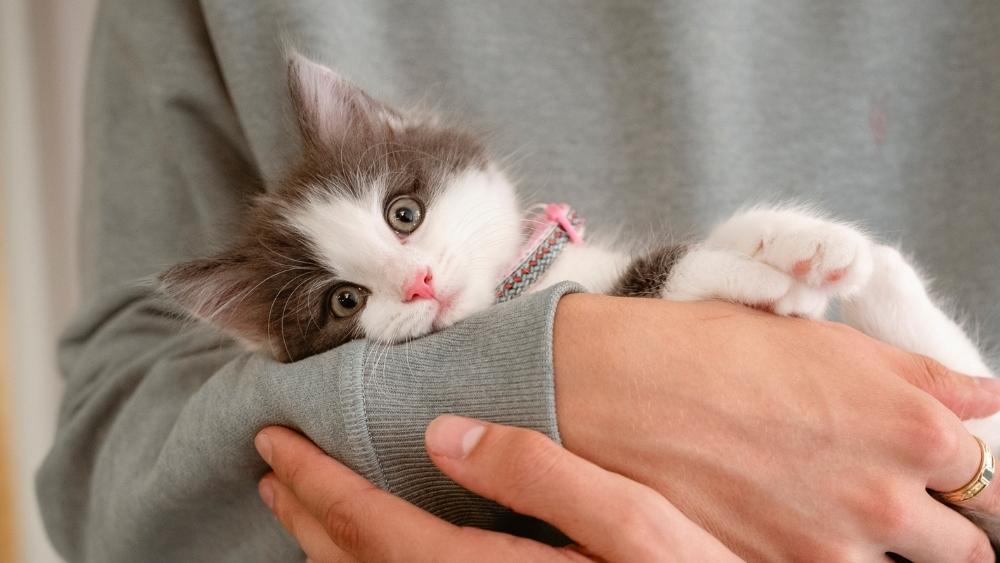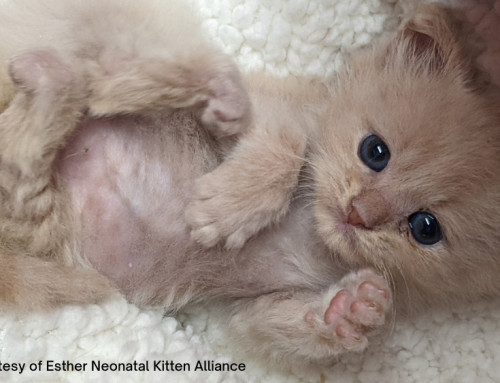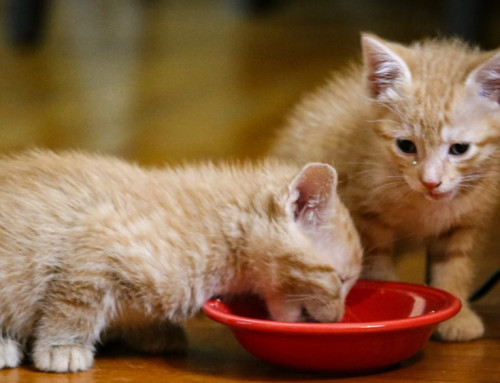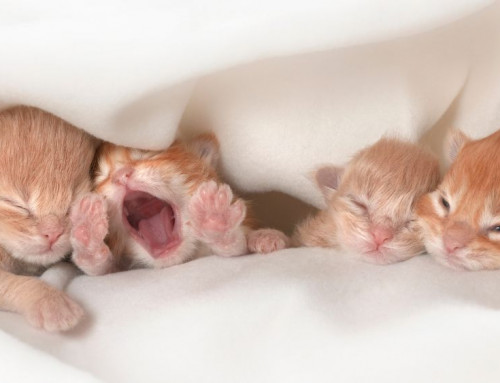Share this resource or email it to a friend!
Any time of year is a good time to adopt, but during spring and summer, known as kitten season, brick-and-mortar animal shelters, home-based rescue organizations and Trap-Neuter-Return groups are flooded with kittens born to outdoor cats. That’s because cats as young as 4 months of age can go into heat when the days get longer, and kittens are born approximately 63 days later.
Some people think that there’s something wrong with shelter or rescue cats. Nothing could be further from the truth! Homeless cats are commonly the result of human issues, including not spaying or neutering pets, moving, divorcing, allergies, losing a job or death of an owner.
Sadly, there are more cats and kittens than adopters; orphaned neonatal kittens who are too young to eat on their own are most at risk. Their survival is hugely dependent on foster homes because no matter how wonderful an animal shelter, it’s not a safe place for neonatal kittens. Their immune systems aren’t fully developed, and their socialization needs are difficult to fulfill because staff and volunteers are so busy caring for other homeless, neglected, abused or sick animals.
Fosters save lives by providing temporary homes for kittens who are too young, sick or unsocialized to be adopted. Adopters also save lives and money and get a great new family member. Please open your heart and home to kittens who need fostering, and you will be won over as you get them ready for a forever home.
Adopters benefit by adopting pets because shelters and rescue organizations thoroughly examine animals for physical and behavioral health, and pets are usually already spayed or neutered, vaccinated and dewormed. Shelters and rescue organizations know how to match adopters with pets who will fit well into their new families; shelters and rescues can also provide a lifetime of support to help keep pets and adopters together when challenges arise.
If you’re not able to foster or adopt a pet, you can still help kittens and cats by:
- Leaving kittens with their mom. People who find kittens outdoors often think they’re abandoned and need to be rescued immediately. Kittens who are safe and healthy have their best chance of survival with their mom. Check out our guidelines listed in the Resource Section below for tips on helping outdoor cats and kittens.
- Volunteering with an animal shelter, rescue organization or Trap-Neuter-Return group. It’s a great way to help cats waiting for their forever homes and to learn about cats and cat care. Petting and playing with adoptable animals, photographing adoptable animals, posting pictures of adoptable animals on social media, assisting with events and trapping and transporting cats are a few other skills that also save lives.
- Providing a barn home for unsocialized cats who don’t want to live as indoor pets. You take provide them with food, water, shelter and veterinary care, and they provide you with pesticide-free rodent control.
- Fundraising for a local animal shelter, rescue organization or Trap-Neuter-Return group. Create an online fundraiser to celebrate a birthday or other special occasions.
- Spreading the word on social media channels about the importance of spay/neuter by five months of age, fostering, adoption and Trap-Neuter-Return.
- Donating directly to the National Kitten Coalition to provide free webinars and resources for anyone who cares for kittens and to keep kitten and veterinary conferences affordable.
There are so many ways to celebrate Adopt-a-Shelter-Cat Month and so many ways to help cats and kittens. Let’s do it 24/7/365!










